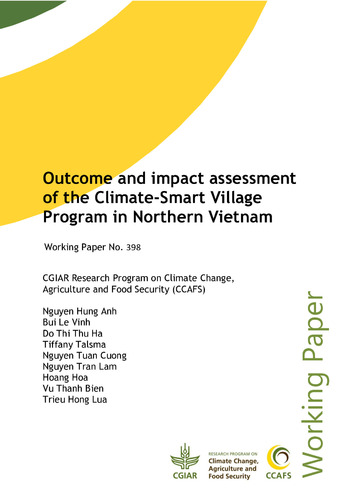Outcome and impact assessment of the Climate-Smart Village Program in Northern Vietnam
Yen Bai province inherits representative biophysical, socio-economic, smaller-holder farming characteristics to economic marginalization and climatic risks and impacts to agricultural production and local livelihoods of Vietnam’s northern mountain region (NMR). The CCAFS project deployed to Ma Climate-Smart Village (CSV) in Yen Bai in 2015 with bilateral funding support from two other research projects aimed at setting up a demonstration-for-scaling example of a rural community equipped with capacities for enhanced climate adaptation and resilience. This study applied a three tier interview data collection methodology (key informant interviews – focus group discussions – indepth farmer interviews) to thoroughly investigate 120 households about six main outcomes accomplished by the project up until 2021. The project has achieved great outcomes from the village to the provincial levels. However, the project work still has a potential to be scaled to the National Target Program on New Rural Development (NTM) given its interest in developing resilient communities in climate-vulnerable regions across the country applying the CSV approach in its 2021-2025 strategy. Despite the closing of the CCAFS program by December 2021, this most important scaling pathway will be continued by the VIBE 2018.05 (funded by the Irish Aid) and COALESCE/2020/34 (funded by the Irish Research Council) under the management of Vietnam National University of Agriculture – a long-term strategic partner of the CCAFS program in the NRM.

